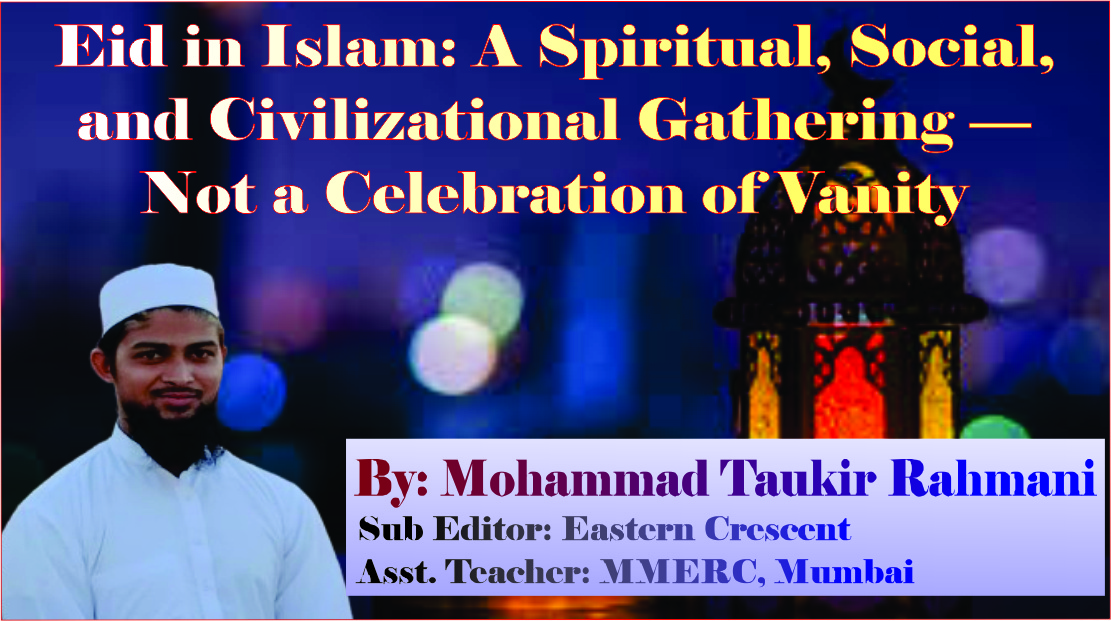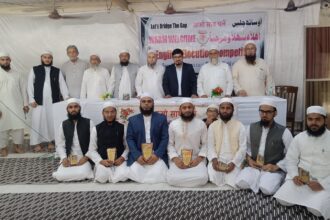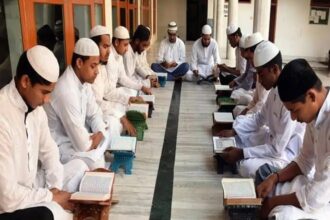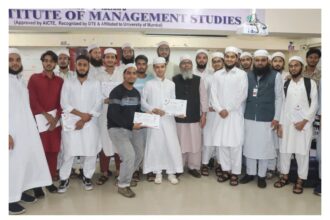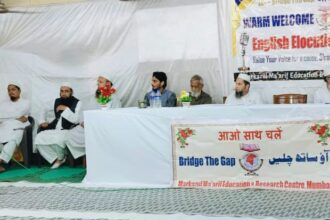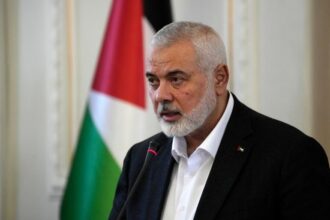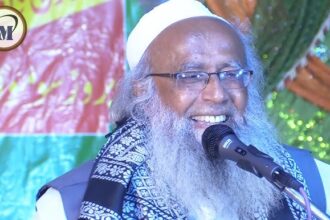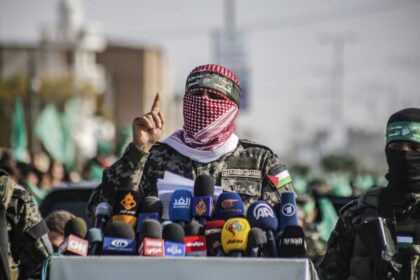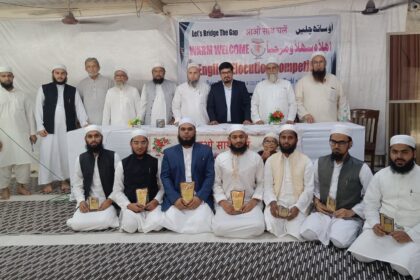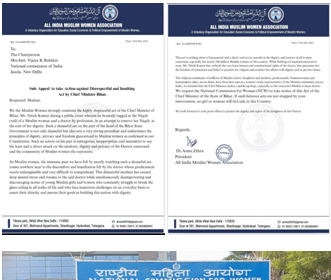By: Mohammad Taukir Rahmani
EC Exclusive
Islam is not merely a religion confined to rituals; it is a comprehensive and natural way of life. It guides humanity at every turn, addressing both the inward and outward needs of individuals with the care and subtlety of a mother nurturing her child. It neither drowns the soul in monastic withdrawal nor lets it slip into the chaos of unrestrained freedom. Rather, it offers a path of balance, moderation, and wisdom; a path that brings serenity to the soul and justice to society.
In Islamic teachings, joy and sorrow are not opposites to be resisted but integral parts of the human experience. Just as Islam teaches patience, acceptance, and mutual support in times of hardship, it also emphasizes gratitude, compassion, and communal harmony in moments of joy. Yet, a question repeatedly knocks at the doors of our conscience: Is it truly possible for all members of society — rich and poor alike — to celebrate happiness together?
This question is not merely emotional; it is a real, intellectual, and practical challenge. How can a labourer who barely earns enough to feed his family, a widow who cannot afford fuel for her stove, or an orphan surviving on charity, possibly stand shoulder to shoulder with millionaires in celebration? At first glance, such a scenario seems like an unreachable dream. But this is precisely where Islam’s divine wisdom and mercy come into full view.
Islamic festivals are not based on superficial rituals or empty traditions. Rather, they rest upon eternal principles of justice, compassion, and human equality. In Islam, Eid is not a pompous celebration meant to flaunt wealth or indulge in extravagance. It is a spiritual, social, and cultural gathering. It is a moment where every individual, regardless of status or wealth, comes together in gratitude before their Creator and in solidarity with their fellow human beings.
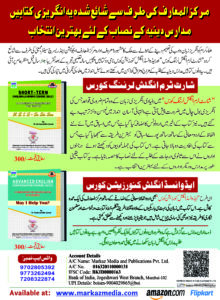
The Islamic framework of Eid is carefully constructed to ensure inclusivity. The institution of Zakatul Fitr, acts of charity, animal sacrifice, shared meals, and collective prayers are all part of a broader system designed to eliminate isolation, prevent hunger, and bridge the emotional and economic gaps among people. No one should be left out. No one should feel forgotten. No one should go to sleep hungry while others feast.
Hence, in Islam, joy is not an individual experience; it is a collective one. Entry into this divine celebration is not purchased through wealth or prestige, but granted through sincerity, intention, and brotherhood. The wealthy are entrusted with the sacred duty of knocking on the doors of the needy — not as benefactors bestowing favour, but as fellow participants restoring balance. The poor, in turn, are given dignity, not pity; a place at the table, not at its edge. Thus, the question of how everyone can celebrate together transforms into the Islamic imperative that everyone must celebrate together, or else the very meaning of celebration is lost.
This is the civilizational revolution that rose from the deserts of Arabia — a message of unity, equality, and justice that continues to echo through time.
Islam’s vision of celebration teaches us that true happiness is not merely a feeling we carry in our hearts, but a grace we share with others. When a festival humbles the ego, lifts the downtrodden, and brings diverse individuals together as equals in the sight of God, then indeed, that is not just a religious event. It is the divine imprint of a faith sent by the Creator of the universe to elevate humanity.
Islam’s System of Compassion: Dignity for the Poor, Responsibility for Society
Islam is not a collection of rituals or a mere religious tradition. It is a complete, eternal, and all-encompassing way of life—one that aligns perfectly with the natural inclinations of the human soul. It offers not just spiritual purification but also safeguards social justice, economic balance, and human dignity. Islam does not cultivate an isolated ascetic, lost in self-denial, but rather nurtures a morally responsible, socially aware human being who lives with a sense of duty toward the world around him.

That’s why, whether during religious observances or festive celebrations—be it Ramadan, Eidul Fitr, Eidul Adha, or any ordinary day—Islam never ignores the poor, the orphaned, the destitute, or the helpless. On the contrary, they are placed at the center of attention and made the focal point of divine mercy.
Islam’s social vision is inclusive and proactive. During the sacred month of Ramadan, alongside its emphasis on spiritual cleansing, Islam institutionalizes compassion through Zakatul Fitr and voluntary charities, ensuring that the hungry are fed, the needy are clothed, and the less fortunate share in the joy of Eid. This is more than a financial gesture, it is a civilizational statement: Joy is only real when shared, and worship is only complete when tied to social responsibility.
On the occasion of Eidul Adha, Islam elevates this ethos even further. The act of Qurbani (sacrifice), though deeply spiritual in nature, carries within it a profound social message of selflessness, solidarity, and equality. The distribution of meat into three parts; one for the family, one for relatives and friends, and one exclusively for the poor—is not just about sharing food. It is a powerful mechanism for social reconstruction, a moral elevation that safeguards the self-respect of the needy while eliminating the darkness of deprivation—without forcing anyone to beg.
This is one of Islam’s most remarkable moral achievements: it protects the dignity of the poor while holding the wealthy not merely accountable for generosity but for fulfilling a divine responsibility. Islam’s economic system doesn’t rely on optional acts of charity alone; it enshrines obligatory duties like Zakat—a pillar of faith—making the wealth of the rich conditional upon the rights of the poor. If a wealthy individual, despite abundance, remains indifferent to the needs of the underprivileged, then his worship becomes a display of vanity—a superficial performance that not only loses divine merit but invites moral accountability.
This is the aesthetic and intellectual depth that distinguishes Islam from other systems of life. Islam does not see charity as a financial transaction alone, but as a moral obligation, a cultural necessity, and a spiritual light. For this reason, the poor are not described as passive recipients or beggars, but as rightful claimants of the wealth entrusted to others. And the affluent are not just seen as owners of wealth, but as guardians, trustees, and constructive agents of society.
Hence, the message is clear: If one person sleeps hungry in a society, it is not merely his hunger—it is the collective failure of the entire community. If someone is alone, abandoned, or shelterless, it is not just his tragedy—it is a consequence of social neglect. Islam does not view this negligence as a minor flaw, but as a moral crime. It envisions a society where compassion (muwasaat), mutual care (takafull), and brotherhood (ukhuwah) are not hollow slogans, but living, breathing realities. In Islam, the accumulation of wealth is not a badge of honor; true honor lies in its circulation, purification, and purposeful use to alleviate poverty and despair.
Islam aspires for a fragrance of joy that does not remain confined to the gardens of the wealthy but spreads to the barren deserts of poverty—so that no eye weeps in silent deprivation, and no heart breaks in the darkness of loneliness.
And while Islam ensures the poor are fed, it never compromises their dignity. At no point—no day, no moment—has Islam abandoned the underprivileged. The same faith that teaches you to bow your head before the Almighty in prayer, also warns you that if you ignore the rights of the poor, your prayer is not devotion—it is hypocrisy. This is the true beauty of Islam: it connects hearts, opens hands, and binds society into a single body, so that if one limb aches, the whole body trembles in pain.
The Meat of Sacrifice: A Tapestry of Spiritual, Social, and Civilizational Harmony
Qurbani—ritual animal sacrifice in Islam—is not merely an act of slaughter; it is a profound expression of civilizational identity, spiritual submission, and social balance. Its essence lies not in the shedding of blood or the indulgence in meat, but in the deeper meanings and subtle messages that elevate the individual from a mere consumer of religion to a responsible and compassionate member of a broader, interwoven community.

The days of Qurbani are linked to the sacred pilgrimage of Hajj—the time when the atmosphere around the Kaaba echoes with the chants of Labbayk Allahumma Labbayk (“Here I am, O Allah, here I am!”). Yet not every believer is able to make the journey to Makkah. The constraints of wealth, geography, and global population make it physically impossible for all Muslims to gather in one place at one time.
And so, Islam in its timeless wisdom offered an extraordinary solution—one that transcends geography and unites the ummah in spirit: Qurbani. This sacred act becomes a symbolic entry into the collective worship of Hajj. For three days, Muslims around the world participate in a festival that fuses devotion with generosity. Through Qurbani, even those who remain at home are spiritually present in the sacred valleys of Mina.
But the sacrifice is more than a ritual; it carries a tri-layered philosophy that integrates spiritual depth, ethical clarity, and social consciousness—beautifully symbolized in the division of the sacrificial meat into three parts.
One Third for Oneself
This portion is not an indulgence, but a divine invitation. It affirms the natural bond formed between a person and the animal they have raised with care. Partaking in the meat is not just nourishment, it is participation in a heavenly feast where the host is God Himself. It reminds us that piety is not renunciation of the world, but gratitude through moderation—recognizing Allah’s blessings and enjoying them without arrogance or waste.
One Third for Relatives and Friends
This portion waters the roots of kinship and rekindles fading bonds. In a world where the rush of modern life often weakens relationships, this meat becomes more than food—it becomes a gesture. A plate of meat can sometimes say what words cannot; it can bridge gaps, soften hardened hearts, and reopen doors that had quietly shut. Qurbani, in this way, becomes a means of reconnection, a rekindling of love where time or ego had sown silence.
One Third for the Poor and Needy
Here lies the heart of Islam’s social genius. This share is not charity—it is justice. The poor are not treated as beggars, but as rightful participants in joy. The daily-wage worker, the dignified widow, the orphan who hasn’t tasted meat in years—receive not leftovers but equal portions. This is not just meat, it is a gift of inclusion, of dignity, of shared humanity. Islam, in protecting the self-respect of the poor, raises the moral bar of the rich.
This tri-fold distribution isn’t a logistical detail—it is an ethical framework. It teaches us that Qurbani is not merely about “giving,” but about noticing—noticing who is hungry, who is forgotten, and who must not be left behind from the divine feast. If one stores the meat in freezers or distributes it with cold formality, the act is emptied of its essence. Islam does not measure the worth of sacrifice by weight but by intention. The Qur’an declares:
> “It is neither their flesh nor their blood that reaches Allah, but your piety.”
(Surah Al-Hajj: 37)
This is why fasting is prohibited in these days—so that no soul, whether wealthy or destitute, misses Allah’s hospitality. These days are not of abstinence but of abundance—forgiving, giving, and celebrating under the watchful gaze of divine generosity.
And all this—this balance of self, family, and community; this fusion of devotion, generosity, and gratitude—cannot be the product of a human system. No man-made ideology has ever woven spirituality, ethics, economics, and community into such an elegant whole. This is the work of the One who not only created the human soul but understands every beat of its longing heart.
So let us not allow Qurbani to be reduced to a mechanical obligation. Let it be a message—a living symbol of love, compassion, humility, and taqwa (God-consciousness). Let it revive our hearts, reconnect our relationships, and rebuild our societies from the ground of gratitude and the sky of sincerity.

